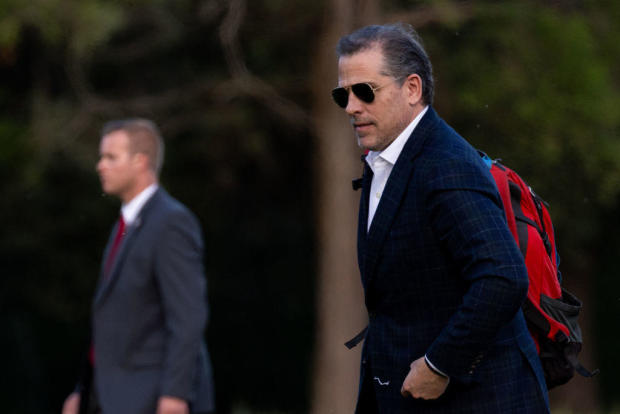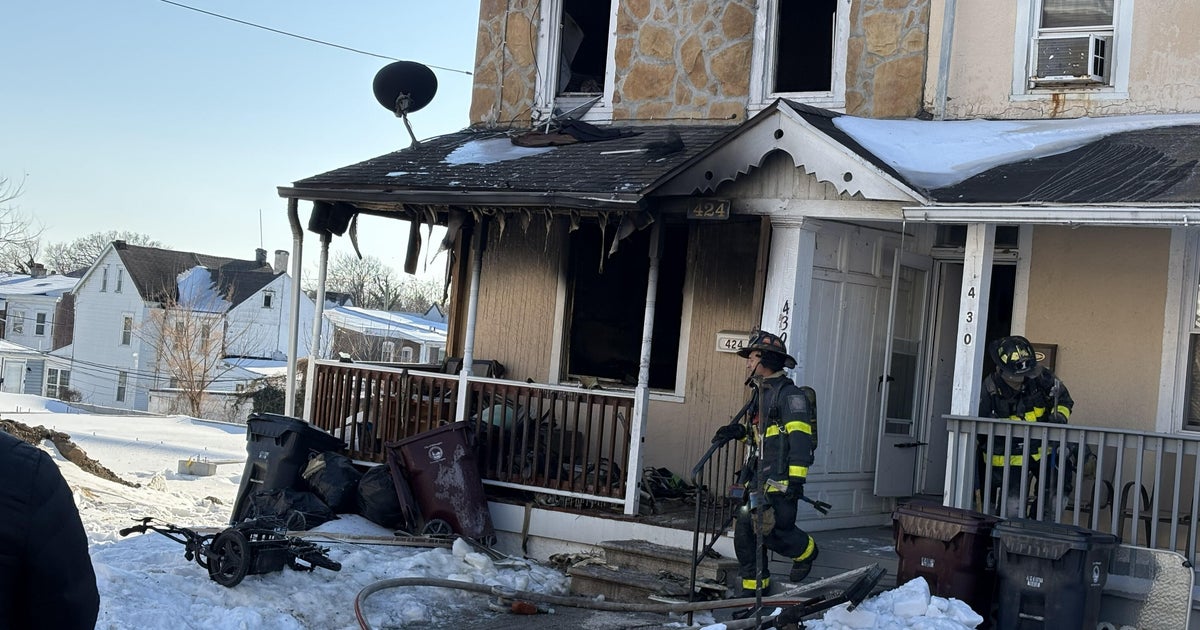Hunter Biden ordered to appear in-person at arraignment on Oct. 3
Washington — Hunter Biden, President Biden's son, must appear in-person for his arraignment on three felony gun charges that is set for Oct. 3, according to a court order issued Wednesday.
U.S. Magistrate Judge Christopher Burke of the federal district court in Delaware said in his brief order that the president's son "should not receive special treatment in this manner — absent some unusual circumstances," and therefore must be physically present for his initial appearance and arraignment.
Lawyers for Hunter Biden had asked the court to hold the proceeding by video conference, writing in a letter to Burke that the "financial impact on government resources and the logistical burden on the downtown Wilmington area are significant in having him travel across the country for what should be a rather short proceeding." Hunter Biden currently lives in California, and the courthouse is in Wilmington.
They said that regardless of whether his appearance is virtual or in-person, Hunter Biden will waive reading of the indictment returned by a federal grand jury last week and plead not guilty to the three charges he is facing.
"In short, Mr. Biden is satisfied that his constitutional rights will be met by conducting his initial appearance by video conference," Hunter Biden's lawyers wrote.
They also said Hunter Biden was asking for the proceeding to be held by video conference to "minimize an unnecessary burden on government resources and the disruption to the courthouse and downtown areas" when someone with Secret Service protection files cross-country and must be transported to and from a downtown location. Such movement requires agents and vehicles in both California and Delaware, and his participation in-person would also require roads in Wilmington to be closed, the lawyers said.
"Mr. Biden is not seeking any special treatment in making this request," they wrote. "He has attended and will attend any proceedings in which his physical appearance is required."
Special counsel David Weiss, who is overseeing the case against Hunter Biden, opposed the request for a virtual initial appearance and arraignment, noting that since June 2022, when an order authorizing video teleconferencing because of the COVID-19 pandemic expired, the court has "almost always" held in-person appearances.
"An in-person hearing is important to promote the public's confidence that the defendant is being treated consistently with other defendants in this District and in other Districts," Weiss and prosecutors on his team wrote in a letter to the court.
They said that though the proceeding is expected to be "straightforward," an in-person proceeding "may be more conducive to addressing any unforeseen issues that arise."
Hunter Biden was indicted on three counts related to his purchase of a firearm, a Colt Cobra 38SPL revolver, in October 2018 while he was a drug user, according to the charging document. The first count alleges the president's son knowingly made a false statement on the form required for firearms purchases, on which he certified that he was not an unlawful user of any narcotic drugs.
Prosecutors said he also made a false representation to the Wilmington-based firearms dealer that sold Hunter Biden the gun, and knowingly possessed the gun during a 11-day period in October 2018 despite being an unlawful drug user, in violation of federal law.
The three counts are felonies, and if Hunter Biden is convicted, he could face up to 25 years in prison.




